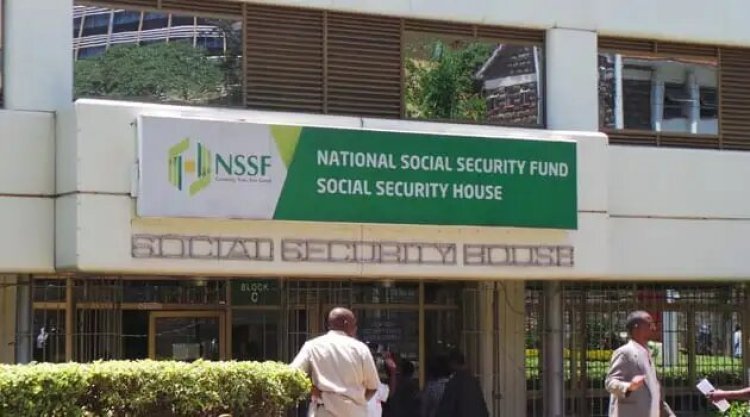NSSF Ksh2,160 Deductions Challenged At Supreme Court
The appellate court is accused of...

The National Social Security Fund's (NSSF) increase in monthly contributions from salaries from Ksh200 to Ksh2,160 has encountered its first hurdle.
This is after the County Pension Association moved to the Supreme Court on Friday, February 17 to challenge the decision of the Court of Appeal that allowed the implementation of the NSSF Act No. 45 of 2013.
According to court documents seen by Viral Tea, the association filed a petition accusing the Court of Appeal of misinterpreting and misapplying various provisions of the Constitution.
The appellate court is accused of holding that the Employment and Labour Relations Court (ELRC) can only determine issues relating to the constitutionality of statutes and fundamental rights in employer-employee disputes.

It was also faulted for failing to appreciate a dispute as to the Constitutionality of a statute that fundamentally alters the pension obligations of every employer or employee n the country is a dispute relating to employment and labour relations.
"Failing to appreciate that the obligation to deduct pension contributions from salaries and remit such contributions to the NSSF (or any other pension scheme) cannot arise in a vacuum and, specifically, in the absence of an employer-employee relationship.
"Failing to appreciate that the mandatory obligations created by the impugned Act (of registration, deduction and remittance of monthly contributions to the NSSF) only apply to employers and employees to the extent that the registration and contributions of other potential members of the NSSF are ‘voluntary’," read the documents in part.
The Court of Appeal was also accused of misapplying the Constitution by relying on judicial precedents on tax laws which are usually construed narrowly or strictly to construe the jurisdiction of the ELRC.
It was also found to have held that the National Assembly can enact a law that incidentally encroaches on matters that fall within the legislative mandate of the Senate without the concurrence of the Senate and that the impugned Act was not a law affecting county governments and thus did not require the concurrence of the Senate.
The association further faulted the appellate court for failing to appreciate that the practical effect of the impugned Act would be to encourage employers, as rational homo economicus, to cut costs by transferring employees from superior pension schemes to the inferior pension scheme established by the impugned Act.
The court also failed to appreciate that the impugned Act conflicted with the Competition Act to the extent that its effect was to give the NSSF a monopoly, which would stifle and kill the pensions industry by favouring the NSSF over other pension providers.
In its certificate of urgency, the association expressed fear that the public will suffer substantial and irreparable harm, including but not limited to a run on pension schemes superior to the NSSF unless the Supreme Court stops the implementation of the impugned Act pending the hearing and determination of their appeal.
The NSSF board of trustees, Labour Cabinet Secretary (CS), Attorney General, Central Organization of Trade Unions (COTU) and Federation of Kenya Employers (FKE) were among 16 respondents listed in the petition.
The Court of Appeal had allowed the government to implement a new law that saw monthly contributions to the social fund increased by ten times.
Appeal Court judges Hannah Okwengu, Mohamed Warsame and John Mativo ruled that the National Social Security Fund (NSSF) Act of 2013, which sought to increase monthly contributions from Ksh200 to Ksh2,000, is legal.
With NSSF's new rates, employers and employees will be required to contribute Ksh2,160 jointly. Tier 1 will see both the employees and the employers pay Ksh360 while Tier 2 (pension fund) will see both the employee and employer pay Ksh720.
"The pension contribution will be 12 per cent of the pensionable wages made up of two equal portions of 6 per cent from the employee and 6 per cent from the employer subject to an upper limit of Ksh2,160 for employees earning above Ksh18,000," NSSF's statement read in part.
For Kenyans earning below 6,000, they will only pay contributions in the Tier 1 category.
Kenyans earning between Ksh3,001 and Ksh4,500 will have Ksh360 deducted monthly while those in the Ksh4,501 and Ksh6,000, bracket will have Ksh540 deducted monthly.

A woman working in an office. /CLASSIC 105






